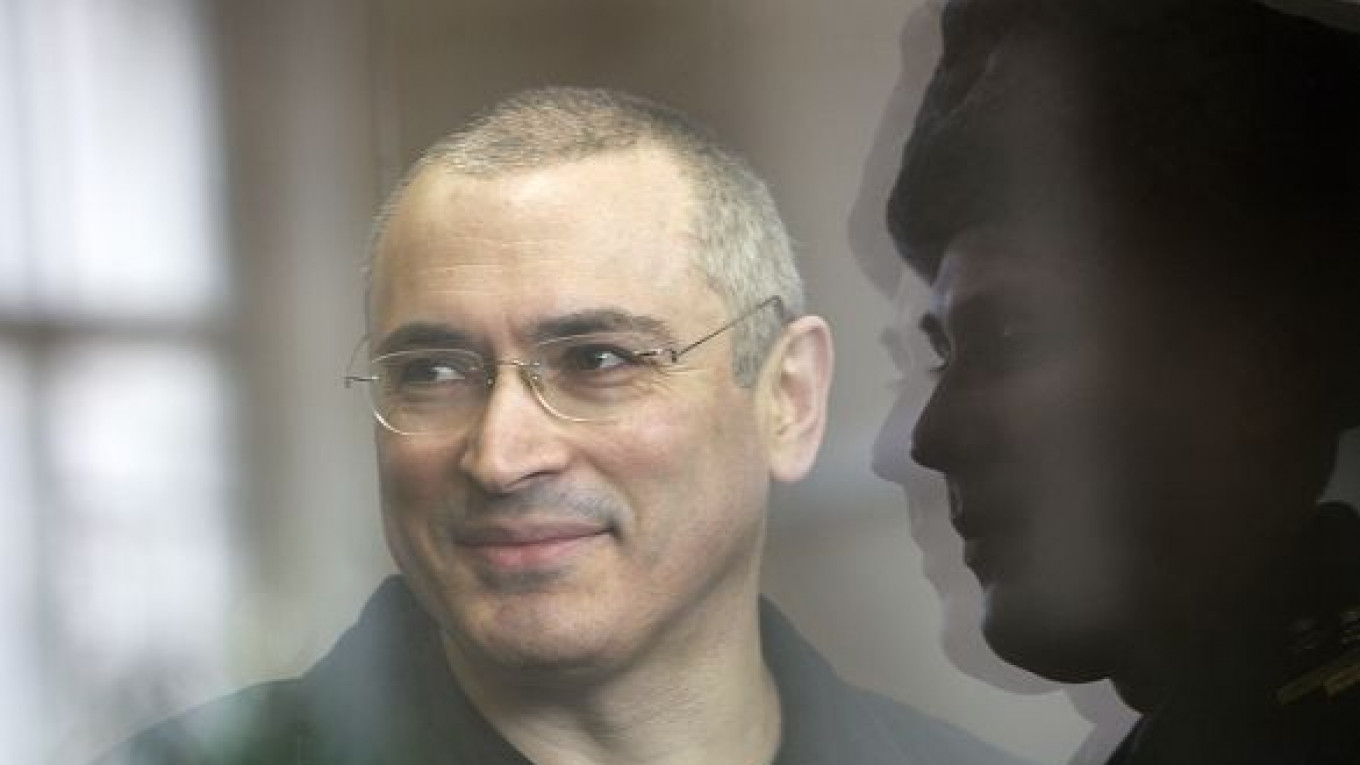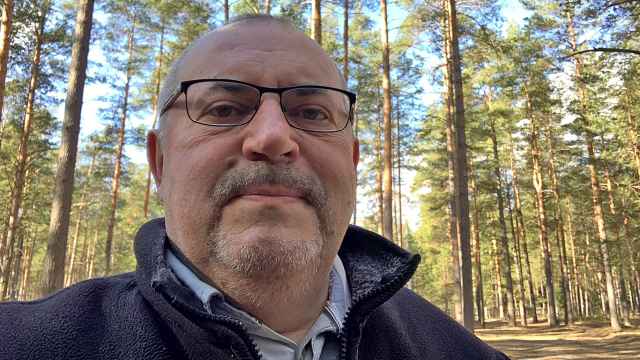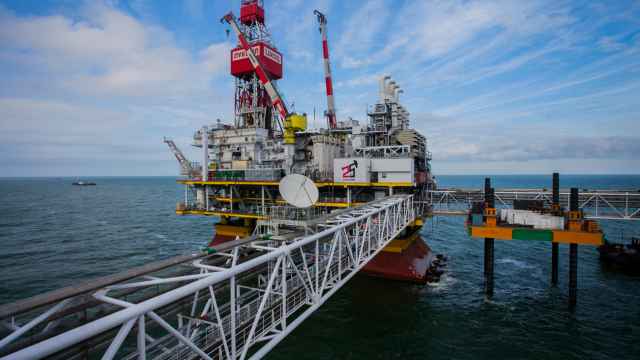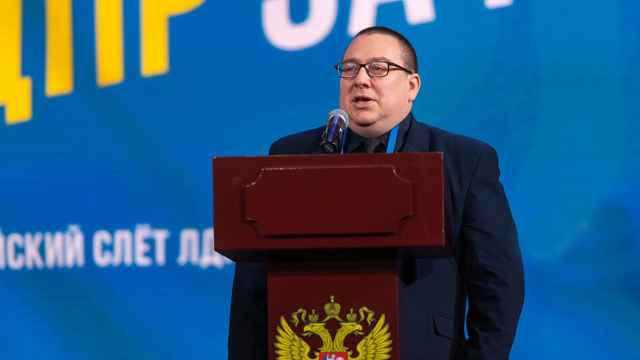Correction: An earlier version of this article did not mention that Igor Yurgen commented for the film.
"Khodorkovsky," a documentary about Russia's most famous prisoner, will debut in Moscow on Thursday, just three days before State Duma elections — but in just three movie theaters after others nervously backed out.
The release was repeatedly rescheduled throughout the year, local distributor Olga Papernaya said, adding that there was no sublime political message in the timing of the film about former Yukos CEO Mikhail Khodorkovsky, who was jailed in 2003 after running afoul of Prime Minister Vladimir Putin's Kremlin.
Still, several movie theaters in Moscow and elsewhere in Russia have reversed plans to screen the film, some citing pressure from the Culture Ministry.
"One day, movie theaters starting with the Moskino [chain] just started ringing me up saying, 'We got a call from the ministry, we can't show the film.' Now they even deny that they ever agreed to show it," Papernaya said at a media screening last week.
The Culture Ministry has not commented on the allegations.
The screening problems "might be linked to the elections," Papernaya said.
"There is no real pressure from the Kremlin. It all comes down to self-censorship," she said.
But she also in separate comments to Dozhd television that movie theaters in the regions were looking to show the film after being flooded with requests.
"Khodorkovsky" was a hit at its premiere in February at Berlinale, one of the world's most prestigious film festivals in Germany, where the screening venue was not big enough to accommodate everyone who lined up to watch.
German-born director Cyril Tuschi uses the 111-minute film to raise questions like why Khodorkovsky returned in 2003 from a trip abroad despite knowing that police wanted to arrest him, why he engaged in charity after initially focusing only on business, and how much of a threat he actually posed to Putin.
The Khodorkovsky film saga is as sprawling as any medieval epic, involving dozens of his subordinates — many of whom have also been jailed — and his former oil empire, which was eventually taken over by state-run Rosneft.
But Tuschi's film mainly focuses on the standoff between Putin and Khodorkovsky and tries to explain their dispute and how it transformed the tycoon, who himself is also a controversial figure, as Tuschi freely admits. Tuschi said he doesn't want to make a political statement with his work.
The film offers a slew of commentary from Khodorkovsky's relatives and past associates, including some foreign politicians. No Russian official agreed to speak for the documentary, except for presidential adviser Igor Yurgens.
"Khodorkovsky" was well received at the media screening last week, which was attended by journalists and prominent culture figures and opposition politicians, including novelist Boris Akunin, who interviewed Khodorkovsky in prison, and Kremlin critic Boris Nemtsov.
"The film was not one-sided. I was afraid it would show an angel-like figure, but it did not, it was rather objective," Nemtsov said at a roundtable after the screening.
He was also quick to link Khodorkovsky's fate with grassroots politics, which is small but growing.
"Nothing will change as long as we only stick to blogging — so come to our meeting on Sunday," said Nemtsov, referring to a gathering that his unregistered Parnas party plans to hold to coincide with the Dec. 4 elections.
Some expressed hopes that Khodorkovsky would become a political leader. "He will come out, and Putin will go to prison. He will become the leader of the opposition," said opposition leader Ilya Yashin.
But he needs to walk out first, Akunin said. "As long as he is in prison, nobody in this country is free. When he is freed, we are all free," he said.
While thanking the public at the screening, Tuschi also admitted that he had hoped for a more confrontational audience. "I am happy that you are all here, but I expected people close to the Kremlin to come and have an open discussion," Tuschi said.
Among those who he thought should have come to the screening were socialite Ksenia Sobchak, the daughter of Putin's former boss, the late St. Petersburg Mayor Anatoly Sobchak; former Kremlin chief of staff Alexander Voloshin; and Rusnano chief Anatoly Chubais.
They still will get their chance: The film is running starting Thursday at Moscow's Eldar theater, Winzavod's FotoLoft venue and the Flakon design gallery.
The film's Russian web site, Khodorkovsky-film.ru, has listed a total of 17 screening locations across the country, including in St. Petersburg, Yekaterinburg, Samara, Kaliningrad, Irkutsk and Volgograd. Moscow's Flakon gallery, a late addition, was not included.
The possible impact of the film is difficult to judge.
Unknown thieves stole Tuschi's computers with the finished film on them at the Berlin festival. The theft failed to stop the screening because the director had kept a copy.
The incident prompted Tuschi to hire a bodyguard for his trip to Moscow.
But he conceded that his film crew had faced no obstruction while making the documentary. "Only once were we followed on the train from Novosibirsk to Chita" by unknown men, he said, adding that the men acted "very openly."
But the film could find an audience as support for Putin slides.
Some Putin supporters have defected to the other side, such as Yakutsk-based pensioner Rimma, who has voted for Putin and his United Russia party since 2000. She told The Moscow Times that she would not back United Russia this Sunday "because of Khodorkovsky."
Tuschi's film is not screening in Yakutsk.
Staff writers Alexandra Odynova and Alexey Eremenko contributed to this report.
A Message from The Moscow Times:
Dear readers,
We are facing unprecedented challenges. Russia's Prosecutor General's Office has designated The Moscow Times as an "undesirable" organization, criminalizing our work and putting our staff at risk of prosecution. This follows our earlier unjust labeling as a "foreign agent."
These actions are direct attempts to silence independent journalism in Russia. The authorities claim our work "discredits the decisions of the Russian leadership." We see things differently: we strive to provide accurate, unbiased reporting on Russia.
We, the journalists of The Moscow Times, refuse to be silenced. But to continue our work, we need your help.
Your support, no matter how small, makes a world of difference. If you can, please support us monthly starting from just $2. It's quick to set up, and every contribution makes a significant impact.
By supporting The Moscow Times, you're defending open, independent journalism in the face of repression. Thank you for standing with us.
Remind me later.






